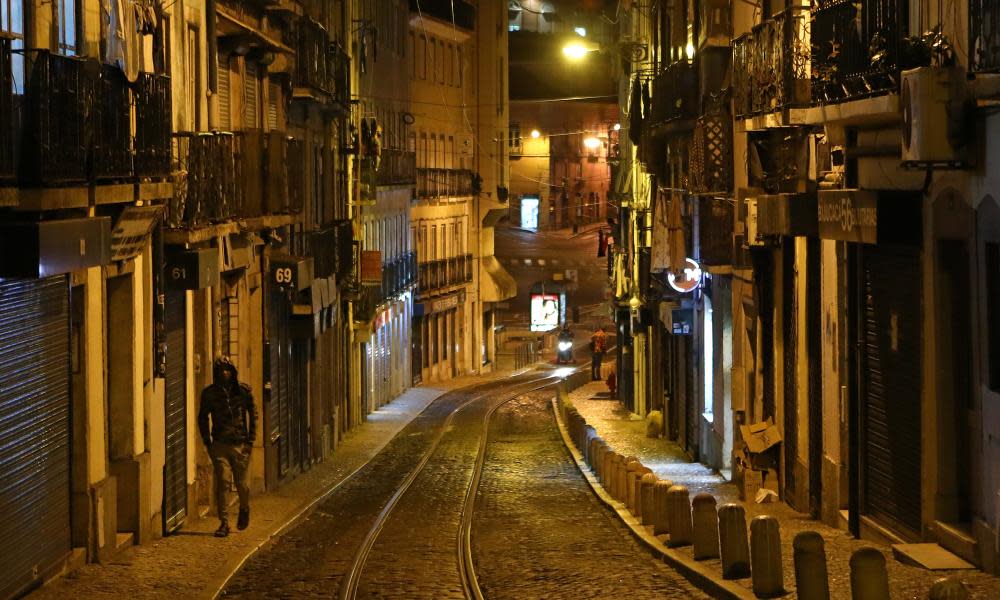The best recent science fiction and fantasy – reviews roundup

Britain under Nazi rule is a staple of alternate history, but CJ Carey’s Widowland (Quercus, £14.99) makes it fresh again. The story is seen through the eyes of Rose, who, being young, healthy and attractive to men, has the highest status permitted to women under the caste system designed by Alfred Rosenberg, Britain’s Protector. It’s 1953, and the war continues, but Britain is one of Germany’s allies. Rose, who is having an affair with her boss in the ministry of culture, is assigned to rewrite classic works of literature to ensure they align with Nazi ideals. Another task brings her into contact with inhabitants of “widowland” – a ghetto for childless women over 50 who are treated with official contempt and kept on short rations. They have not forgotten the truth about the past and have something to teach Rose about books and resistance. CJ Carey is a pseudonym for Jane Thynne, author of a series of spy novels set in 1930s Germany, and she clearly knows her Nazis. Rosenberg was a real Nazi ideologue who thought society would benefit if women were forced to live under a caste system, with older, childless widows seen as a drain. This is an absorbing, Orwellian dystopia that makes a good case for the subversive power of literature.
For good old-fashioned science fiction and a veritable feast for the maths and science nerd, turn to The Martian author Andy Weir’s Project Hail Mary (Del Rey, £20). My own deficiencies had me skimming over the calculations, but this is still the most enjoyable hard SF I have read in years: funny, well plotted and full of surprises. In addition to enjoying the cracking story, it was a pleasure to read about people relying on logic and science as the best way to solve problems.
Susannah Wise’s This Fragile Earth (Gollancz, £14.99) is a powerful near-future tale of apocalypse and survival. It begins quietly in London with the ordinary daily routines of Signy, a stalled musical composer, and her six-year-old son Jed. One day, there’s no electricity or gas in the flat – or anywhere. When batteries run down, there’s no way to recharge them. Soon the water is off. Jed’s father is sure everything will be back to normal in a few days, and the police tell everyone to stay at home. But as it becomes harder to get supplies, Signy decides they must leave for her childhood home in the countryside, where survival might be possible. What she finds there is not what she expected. This is an intense, engaging and beautifully written first novel.
Rabbits by Terry Miles (Del Rey, £16.99) is the story of K, a self-proclaimed expert on a dangerous underground game referred to only as “Rabbits”. He has never been a player, yet one night a reclusive tech billionaire – who is rumoured to owe his success to winning an earlier round of the game – approaches him for help. Something has gone wrong, and only K can fix it. After promising to explain everything, the man disappears. As K struggles to identify the potential problem, and a friend’s interest in the game takes a deadly turn, he wonders if he is going mad, remembering things that never happened, seeing patterns where none exist. Or is the game itself changing the fabric of reality? Quirky, mind-bending fun, especially for lovers of coincidence and far-out conspiracy theories.
Ed O’Loughlin’s fifth novel, This Eden (Riverrun, £16.99), also plays with coincidence and features a mysterious tech billionaire and an existential global threat that can only be stopped with the aid of a particular young man. It could hardly be more different, though, in style and tone. A sophisticated literary thriller, it is written with super-cool elegance and a keen eye for detail reminiscent of the best of William Gibson. Manipulated by the mysterious, philosophising Towse, Aoife and Michael must keep moving, warned to stay off-grid or be captured by the sinister agents pursuing them for reasons Towse is not ready to disclose. They manage to get from California through Africa to Israel, and then to Europe for the final showdown in Dublin. This is a breathtaking, memorable adventure with a serious heart.
The Colours of Death (Hodder & Stoughton, £16.99), the debut novel from Patricia Marques, is a police procedural set in Lisbon, in an alternate reality in which a small number of people – the “Gifted” – have telepathic or telekinetic powers. One of them, Isabel Reis, is a police inspector confronted with the most disturbing case of her career: a man is dead, probably forced by someone powerfully Gifted to kill himself in a most painful way. Marques plays fair with the reader, and this is a good detective story which can only work if the reality of extrasensory powers are accepted from the start. But the discrimination faced by the Gifted doesn’t work as a metaphor, and there’s no explanation of why the regulatory system was developed, or hints of any other major differences between this Portugal and our world, which seems a missed opportunity in an otherwise intriguing story.


